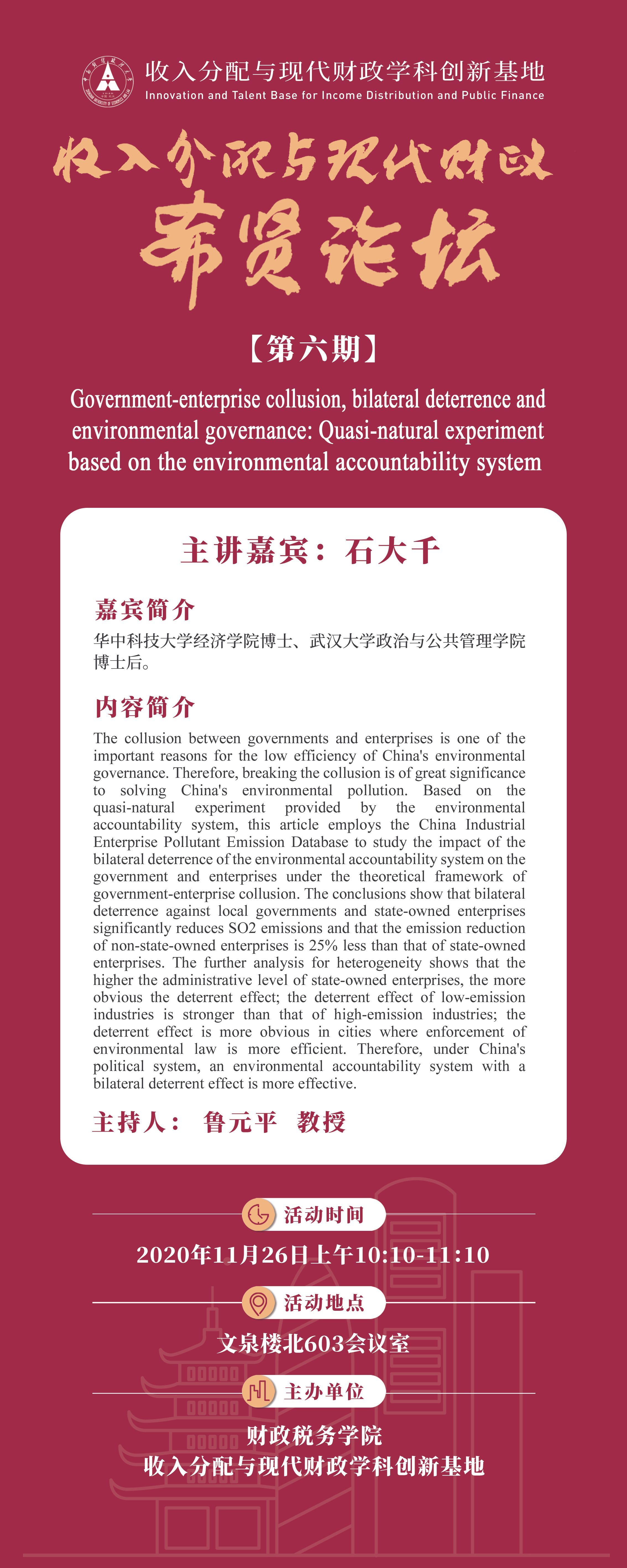
Topic: Government-enterprise collusion, bilateral deterrence and environmental governance: Quasi-natural experiment based on the environmental accountability system
Time: 10.10-11.10 a.m. Nov 26, 2020
Venue: Conference Room 603, the North Wing of Wenquan Building
Host: Professor Lu Yuanping
Guest Speaker: Shi Daqian
Ph.D. of School of Economics, Huazhong University of Science and Technology; Postdoctoral Fellow of School of Political Science and Public Administration, Wuhan University
Introduction:
The collusion between governments and enterprises is one of the important reasons for the low efficiency of China’s environmental governance. Therefore, breaking the collusion is of great significance to solving China’s environmental pollution. Based on the quasi-natural experiment provided by the environmental accountability system, this article employs the China Industrial Enterprise Pollutant Emission Database to study the impact of the bilateral deterrence of the environmental accountability system on the government and enterprises under the theoretical framework of government-enterprise collusion. The conclusions show that bilateral deterrence against local governments and state-owned enterprises significantly reduces SO2 emissions and that the emission reduction of non-state-owned enterprises is 25% less than that of state-owned enterprises. The further analysis for heterogeneity shows that the higher the administrative level of state-owned enterprises, the more obvious the deterrent effect; the deterrent effect of low-emission industries is stronger than that of high-emission industries; the deterrent effect is more obvious in cities where enforcement of environmental law is more efficient. Therefore, under China’s political system, an environmental accountability system with a bilateral deterrent effect is more effective.
